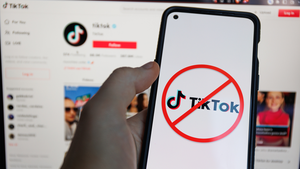How employers can promote health & wellness for their workforces
In the time of COVID-19, the way we work has fundamentally changed—which means so should the ways you look after your employees.

There is no doubt the COVID-19 pandemic has had a profound impact on the workplace—from how we collaborate with others, to where we are working from, to the hours we’re working—but an area that’s often overlooked is how employees’ personal lives are also affected. Burnout has never been more real; employees are working two or three more hours per day than they were before the pandemic, which has pushed them to put other goals , like personal health and wellness, on the back burner. In order to keep their employees productive, happy and healthy, it is the responsibility of companies and HR teams to make access to a healthier lifestyle easier for today’s workers and provide employees with opportunities to invest in themselves.
Prioritizing a healthy work/life balance
More than two-thirds of employees report they are experiencing symptoms of “burn out,” with three hours more time spent working daily than pre-pandemic. With non-stop virtual calls, constant computer access and our living area becoming our workspace, employees have lost any separation between work and home life. Research also shows 74% of employees have indicated that at least one aspect of their wellbeing—physical, mental, social or financial—suffered during the pandemic. Helping employees to incorporate activities such as exercising regularly, eating well, focusing on nourishing the mind and body, and building in “me” time to their schedules is important to sustain engagement, productivity and mental health.
How to help your employees
While there’s no question companies should help employees, it’s often challenging for business leaders to identify just how to support wellness in the workplace—remote or not. Programs that are all-encompassing and address various aspects of wellness are most effective.
Providing wellness offerings that span physical, mental, emotional, social and financial wellbeing is key to supporting overall employee wellbeing; employers should look at wellness holistically. A MetLife study revealed holistic programs that are personalized to individual needs produce 12% higher engagement and increase productivity by 9%. Providing a variety of options that are personalized to the unique needs of employees is key to supporting employees’ wellbeing. Moreover, companies must also establish programs that cater to employees’ different needs, whether they are Millennials or Gen Zers, have families or not, or are looking to improve their physical health or are coping with stress and anxiety.
Nutrition benefits
When thinking of wellness, physical fitness or mental health often come front and center, but nutrition benefits are also key—if not the most important—to maintaining your overall health.
When one's day consists of back-to-back meetings and deadlines, people tend to go for the most accessible food items that can be eaten on the go, which are often pre-packaged snacks or caffeine- and sugar-loaded beverages. This is even more pressing an issue when people work from home and can easily dig into the cupboard for carb-loaded snacks instead of preparing a healthy meal. Providing convenient and healthy food options for employees makes it easier for them to go for the healthy choices. Consider providing employees with a meal stipend for meal-kits and grocery delivery services like Blue Apron, Purple Carrot, Sweetgreen, and Daily Harvest to give them access to healthy and personalized nutritional options.
In fact, at HealthKick, we’ve seen 140% increased usage of nutrition brands, which indicates employees are heavily relying on these resources for their meal planning and to bring convenience to healthy eating while working from home. People are turning to food for comfort but are recognizing that bingeing on snacks is not the best approach. By providing stipends for food, or offering healthier options, employers can make a great impact on the lives of their employees every day with minimal investment.
Since the pandemic, we’ve also seen that with remote work has come virtual schooling and a new balance of home life with work life. While breakfast and dinner were the main meals children ate at home, lunch is a new responsibility for parents to take care of during the day. When switching between video calls and other professional priorities, working parents need to be able to create a healthy meal for their children. Employers that can offer stipends or cover meal kits will not only save their employees time and money but can also reduce the stress that could come with meal prep. Nutrition extends beyond the employee, and companies should recognize that and find ways to cater to employees’ new needs.
Beyond subsidizing meals, employers can consider webinars on nutrition/heathy eating or covering part of the cost of nutrition counseling/coaches. Many people are trying to be healthy, but don’t have the education they need on nutrition to create a healthy, well-balanced diet with limited time.
By taking these steps, companies can help employees strike a healthier balance with their eating and through every other aspect of wellness as well.
Erika is the Founder & CEO of HealthKick, a corporate wellness membership that brings the best of consumer health, fitness and wellness to employees with personalized access to over 500 leading consumer health, fitness and wellness brands spanning boutique fitness, meal delivery, mindfulness, clean beauty, personal care, athleisure and more. Prior to founding HealthKick, Erika worked in financial services at GE Capital and Fieldstone Private Capital Group, a boutique investment banking advisory firm. She graduated from Princeton University in 2003 and earned her MBA from Columbia Business School in 2011.
About the Author(s)
You May Also Like






